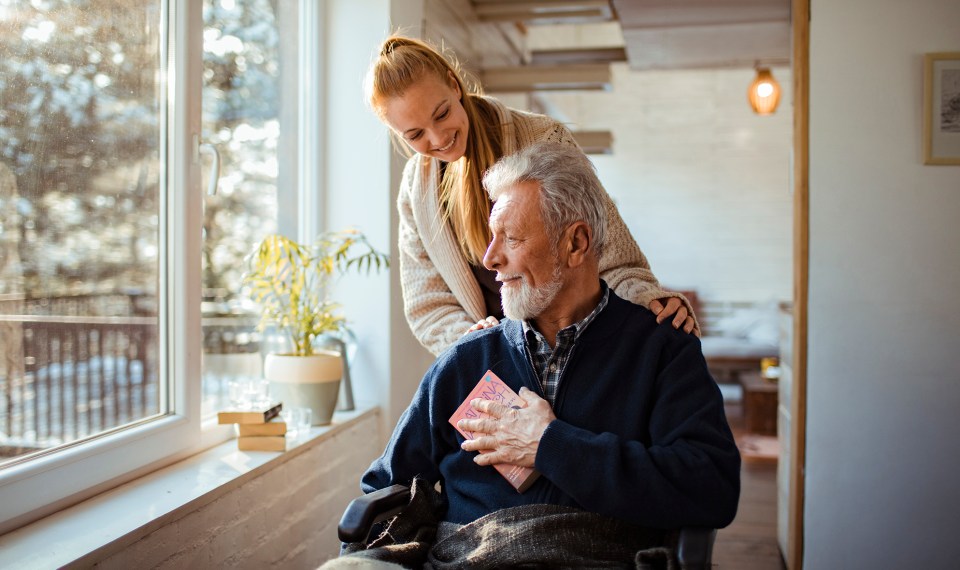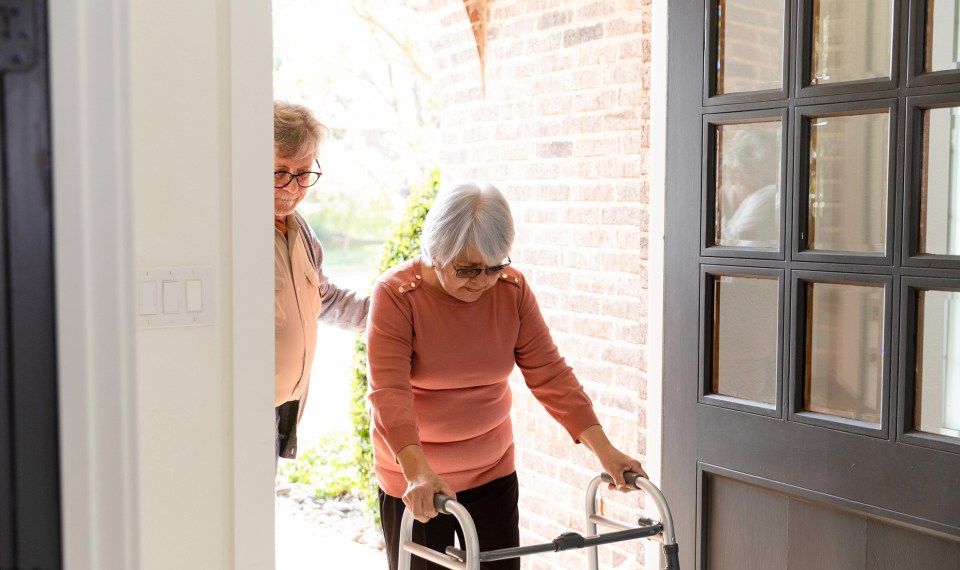Multiple studies show that staying social as you age can improve your health both physically and mentally. However, as you get older, sometimes it’s not as easy to socialize as you once did.
You no longer have the day-to-day routine that working once brought, and family and friends may have moved away or passed on, leaving you feeling lonely and isolated. Even if you do still have friends and family nearby, you may feel like you are holding them back, as you might not be as quick on your feet as you once were.
That doesn’t mean that as an older adult you have to go it alone. In fact, there are health risks associated with not staying social.
Health Risks of Social Isolation and Loneliness
Though it may not be as easy as it once was, staying social is even more important as you get older. Not staying social as you age can put you at a higher risk for certain diseases and conditions. According to the National Institute on Aging, social isolation and loneliness are associated with higher risks for:
- High blood pressure
- Heart disease
- Obesity
- Weakened immune function
- Anxiety
- Depression
- Cognitive decline
- Dementia, including Alzheimer’s disease
Tips on Staying Social as You Age
If you are feeling lonely or isolated, consider trying one or more of the following:
- Phone a friend. Maybe family and friends have moved away, but that doesn’t mean you need to lose touch. Make a list of three to five family members or friends, and take the time to give them a call each week. If you’re feeling lonely or isolated, don’t wait by the phone for others to call you. Take the initiative, and do the dialing yourself, or better yet, make a video call, so you can not only talk to your loved one, but also see their face. Several technologies and apps out there make video calling easy. If you’re unsure how to make a video call, check with your local library or senior center. Many offer technology training and assistance.
- Volunteer. Volunteering at a local animal shelter or charity is a great way to get out and meet new people. It also provides purpose and a sense of fulfillment. Contact a local organization that is near and dear to you, and find out what opportunities might be available, or visit VolunteerMatch, which will assist you in finding an organization in your area that matches your interests and abilities.
- Learn something new. Take a class at a local community college, or see if your local library has any offerings. Learning something new can not only help you stay social, but studies also show it can ward off dementia and keep your mind sharp as you age. It will also give you lots to talk about when you call those family members and friends each week.
- Join or start a club. Chances are, if you have a hobby or interest, there is a club for that, and if not, try forming your own with friends who have similar interests. Check with your church or local library to see if there are any clubs, or find a few friends with similar interests and start meeting on a regular basis. Whether it’s a bridge club or a Bible study, clubs are great ways to socialize and connect with others.
- Get moving. Join a gym or find a fitness class in your community. Many parks and recreation programs offer fitness activities that are tailored to older adults. Silver Sneakers is an exercise program for seniors with locations nationwide that offers free classes to those 65 and older on certain Medicare plans. If a class isn’t your thing, get outdoors and head to a nearby park for a stroll. Just being among other people, even strangers, can combat loneliness. Regular exercise also is proven to help with anxiety and depression and other health conditions such as high blood pressure and arthritis.
- Adopt a pet. There’s a reason they call them man’s best friend. Dogs, as well as cats and other pets, can be great companions, especially for those living alone. Your local shelter can help find you a furry friend that is right for you and your lifestyle.
Resources for Seniors
If you live alone and have lost many of your friends and loved ones, staying social as you age is even more difficult. You might not feel confident introducing yourself to new people and situations. There are resources out there to help you form new relationships.
- Senior centers offer a variety of activities for you and your peers. From bingo to ballroom dancing, senior centers have something for almost everyone. In addition to activities, senior centers can also connect you to resources in your community to help you stay independent. Check with your city or town hall to find one close to you.
- Stitch is an online community for those 50 and older who are looking to meet new people. Whether it’s connecting in an online discussion, joining a travel group or having a local movie night with those in your area, the goal of Stitch is to provide a solution to isolation and loneliness related to age and was created by members for members.
- The Institute on Aging’s Friendship Hotline is the only accredited hotline for seniors and adults with disabilities. The hotline is not just for emergencies. If you are 60 or older and find yourself needing to talk to someone, trained volunteers are on hand 24/7 to chat. The program also makes regular outreach calls to older adults who are feeling isolated and alone.
The content of this site is for informational purposes only and should not be taken as professional medical advice. Always seek the advice of your physician or other qualified healthcare provider with any questions you may have regarding any medical conditions or treatments.



